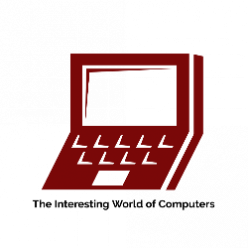Diesel engines have gained a lot of popularity due to various reasons. When compared to gasoline counterparts they are more energy efficient and environmentally sustainable. In addition, they play an important part in heavy-duty applications, in addition, they are utilized in passenger cars and lighter-duty vehicles.
As the usage of vehicles powered by diesel engines is on the rise as well, their emissions have been tracked. Engine makers are trying to lower their environmental footprint by innovating fuel formulas, and improving after-treatment technology.
This is precisely where a Diesel Particulate Filter (DPF) appears on the scene. What is DPF, and why is it important?
Let’s see what we can find out!
WHAT ARE DIESEL PARTICULATE FILTERS?
A diesel particulate separator (DPF) is one of the most critical after-treatment devices within your vehicle. It collects and stores dust particles from the exhaust as well as other contaminants to reduce particle matter (PM) emissions from diesel engines.

HOW DOES A DPF WORK?
While there are various kinds of DPFs (silicon carbide DPFs metal fiber DPFs and cordierite DPFs) celluloid honeycomb filters from ceramic are the most frequently used. Ceramic materials, like silicon carbide, cordierite, and aluminum titanate, have excellent thermal resistance and stability.
The honeycomb made of ceramic DPF consists of channels that are blocked at each end, forcing exhaust gas that contains soot particles through the wall. As the gas moves through the filter, harmful soot remains in its pores.
However, a DPF has a limited capacity. This is why the soot in the filter has to be eliminated to ensure the proper performance of the filter. This process is known as DPF regeneration. In the process, soot within the filter is burned off. Read more about the regeneration process below.
THE CAUSES OF DPF FAILURE
The regeneration of a diesel particulate filter only occurs when certain criteria are fulfilled. A few of the variables which can influence it to include engine temperature, vehicle speed, vehicle RPM, and the temperature of the exhaust gas. The ideal EGT is about 250degC which your egt sensors will recognize. In order for the EGT to rise to this temperature your car must be in excellent condition.
So, any mechanical issue could stop DPF regeneration and lead to its clogging. Therefore, before you decide to change your DPF take the time to have a mechanic check the vehicle to find out if other issues could be preventing regeneration.
Here’s a short list of potential issues that could directly impact the outcome of the regeneration process:
- Glow plugs can be turned on as part of the DPF regeneration process. The failure of one or more of the glow plugs can cause a delay in regeneration and lead to the formation of soot-like particles.
- The thermostat: If the thermostat is broken the engine will not reach the optimal temperature needed for activation of DPF regeneration.
- The lambda sensor is part of an emissions control system. The damage to it directly affects the result of regeneration.
- DPF sensors The diesel particulate filter comprises various sensors which track its performance. Damage to DPF sensors could lead to incorrect readings and cause DPF problems with performance.
- A short journey at a low speed where the diesel engine is unable to attain the optimal temperature for operation. The DPF regeneration process continues to be shut down, and it is not able to remove soot particles.
- Operating at low revs: While this may increase fuel efficiency, this method is one of the major reasons for DPF failure. For instance, the engine warms up too slowly and is not reaching the required temperature to allow for DPF regeneration.
- Use of the wrong engine oil: Cars equipped with DPFs require the use of low-SAPS and mid-SAPS engine oils.
- EGR valve failure: When it is clogged it can result in the excessive accumulation of soot.
- A tank devoid of additives can cause problems with DPF regeneration and leads to premature blockage in its porous walls.
- Do not have your DPF assessed. Regular inspection allows you to spot DPF performance problems. A mechanic will tell you whether the DPF needs to be cleaned.
